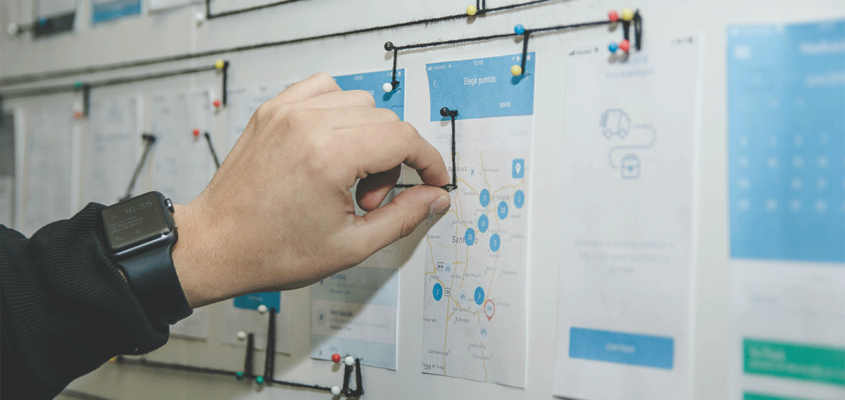A lot of UX Designers are eager to make their mark and work for a cool, cutting-edge brand. This often leads UX professionals to avoid enterprise positions altogether. But is this characterization an unfair dismissal? Here’s an in-depth list of the pros and cons of an enterprise UX job so you can decide for yourself.
Pros
1. Higher Visibility:
While these large corporations may not be the coolest brands around, they do have a huge, established platform so your work could be seen more widely than ever before. If you care about increased visibility, this could be the perfect route for your career!
2. Better Work-life Balance:
Cooler brands often think they’re disrupting the world and expect you to put in a lot of extra hours while working at break neck speeds to get this done. If you’re looking for a more consistent work-life balance, an enterprise UX job is a better bet.
3. Increased Stability:
A lot of cool brands are new and, while some will stand the test of time, others will just be fads or trends. Working at a startup or one of these newer, less-established companies naturally offers less job stability. If stability is one of your priorities, enterprise UX positions are a better choice.
4. Less of a Feeling that You Need to Constantly Prove Your Worth:
When you’re working for a cool startup, there’s general anxiety around the office that, if you’re not doing your best every day, you’re not proving you’re worth having around. This increases your stress level which is never a great thing. If you hate the feeling of needing to constantly prove your worth, the more relaxed atmosphere of traditional, corporate, enterprise UX teams could be a better fit.
5. Better Pay:
Let’s face it, a lot of cool brands will use their coolness factor to their advantage by offering lower salaries. They know a position at their company is generally more desirable than one at a less exciting or more traditional brand and that knowledge can often spill over into your compensation. Conversely, “boring” brands that struggle to attract top UX talent might offer higher salaries and better benefits in order to find the employees they’re looking for.
Cons
This is, of course, a generalization but traditionally cooler brands and cutting-edge startups churn out work at a breakneck speed. If you’re used to and love that fast-paced environment, working in an enterprise or more traditionally corporate environment may feel jarringly slow by comparison. However, if you get in at a company that’s open to hearing your ideas and implementing more optimization, you could help speed up this process or you could use your extra time to work on a wider variety of projects.
2. More Compromise and Red Tape:
If you’re working in a larger corporation, compromise will need to be found around every corner. Plus, there’s a lot more red tape so implementing your new ideas may or may not happen and project approvals may seem like a tedious process.
3. Messier, Lengthier Projects:
Because these more traditional enterprise companies are often massive, their products and projects can become a convoluted mess very quickly. This can lead to even lengthier project timelines and, if you’re the kind of person who likes to produce a lot of work at a rapid pace, this could become frustrating to you.
Don’t let the assumption that enterprise UX jobs are less exciting than UX positions at cool, innovative startups be a roadblock in your career. Use this list of pros and cons to evaluate whether you might be happier in a corporate UX job at a company that others might think of as “boring”.
For more career advice, check out
our blog!

